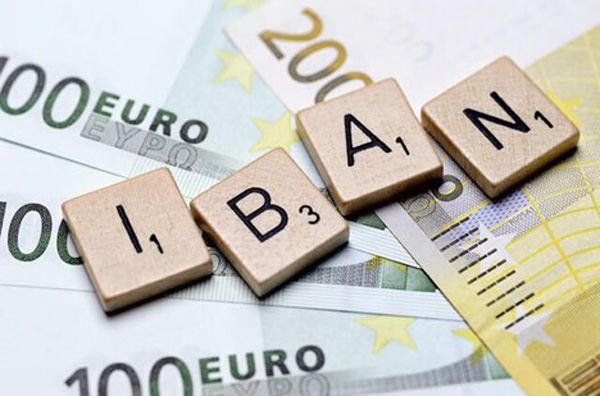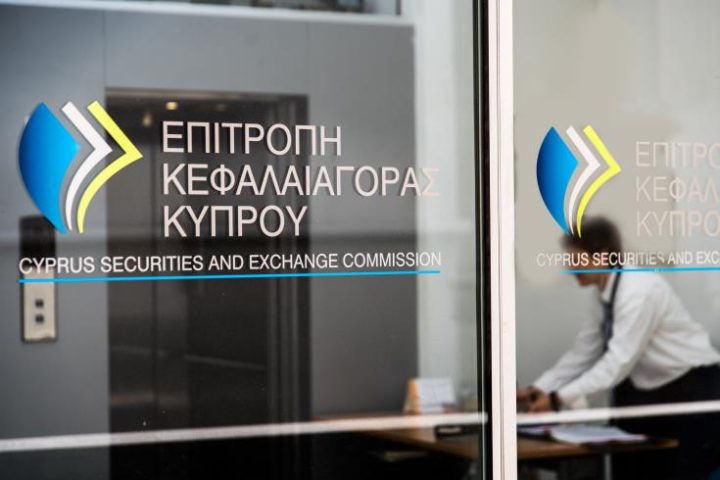The International Bank Account Number (IBAN) is a standard account number structured according to the specifications issued by the European Committee for Banking Standards (ECBS) and the International Organisation for Standardisation (ISO).
It is an international, agreed-upon method for identifying an account anywhere in the world.
Before the creation of the IBAN, both companies and individuals were confused by the complexity of the numbers that existed in relation to the verification of each bank account as a result of the various bank codes and methods.
With the creation of the Single Euro Payments Area (SEPA), IBAN has become an important cross-border trading tool within the SEPA area.
The purpose of the IBAN is to replace the individual bank account numbers, which in many cases create confusion and delays in electronic transactions.
In March 2012, the European Parliament adopted Regulation (EU) No 260/2012, establishing technical and business requirements for credit transfers and direct debits in euro, also known as “The Regulation for SEPA”.
The regulation dictates the exclusive use of IBAN instead of the conventional bank account, for any transaction, both in Cyprus and the entire SEPA zone.
All EU member states adopted this obligation for both internal and cross-border transactions by February 2014.
Due to the intense competition, financial institutions are exploring new ways to promote their services and financial products.
A favourable environment is created for online banking.
They are issuing their customers’ IBANs electronically and without their customers’ physical presence in the store, either for opening an account or for executing a transaction.
Save time and cost
This way, the financial institution is transferred to the screen of a computer or a smartphone, drastically reducing the time and cost for customers and the financial institution.
The IBAN has a fixed number of characters for each country with a maximum length of 34 characters which can be numbers or uppercase letters of the Latin alphabet.
The first two alphabetical characters define the country; as per ISO 3166 standard, the financial institution where the account is kept is established.
The next two characters are check digits and are used to validate the remaining characters contained in the IBAN according to ISO 7064.
The remaining part, which can be up to 30 alphanumeric characters and is named Basic Bank Account Number or BBAN, contains the code number of the bank and the branch, as well as the number of the customer’s account.
In cooperation with the Central Bank of Cyprus, the banking system agreed to implement 28 features for the Cypriot IBAN.
Regulation (EC) No 924/2009 of the European Parliament and of the Council of 16 September 2009 on cross-border payments in the Community requires payment service providers to provide the payment service user with the IBAN and the Bank Identifier Code (BIC), to improve the processing of cross-border payments in euros in terms of cost, speed and quality of transactions.
With Cyprus joining the EU, the above Rules of Procedure of the European Parliament and the Council concerning cross-border payments in euros have been fully implemented.
When making a cross-border payment and the beneficiary’s financial institution is located in a country that participates in the International Bank Account Number system, you will need an IBAN.
It must be entered without spaces in the field reserved for the beneficiary’s account number when executing payment.
In addition to the IBAN, you will need the following information from the beneficiary so the transfer can be processed:
- The name of the account
- The SWIFT/BIC number
Depending on your financial institution, you may be asked for additional information such as the beneficiary’s bank name, bank address, and personal address.
Use the right IBAN
It is important to use the right IBAN when sending money.
If it is incorrect, your financial institution may send the money to the wrong destination or charge you for an invalid payment.
Usually, you can find your unique IBAN by logging in to your online account, on your bank statement, or if neither option is available, by visiting the financial institution with which you cooperate.
It is also important to remember that an IBAN in the correct format does not necessarily mean that it exists.
Or that it is the right IBAN for a particular account.
You should always check with your recipient or financial institution before sending or receiving money.
However, IBAN discrimination is a more common occurrence than it appears, particularly in some EU countries and in cases that a person holds a foreign bank account.
Local service providers and even government institutions, ranging from city councils to a ministry’s office, may claim that they cannot accept payment from your EU account in some cases.
It is important to note that this is no longer the case as of 2014.
As EU members, any bank account with a European IBAN is just as valid as any other bank account in the country where you live.
Many alternative financial service providers, such as eCREDO in Limassol, have created ways for users to easily share their IBAN details with any company or individual from which they are to receive money.
In the eCREDO mobile app, there is a very convenient feature called “Send IBAN details” that allows you to send your details to anyone you wish to receive money from using any of the apps installed on your smartphone (SMS, Messenger, Viber, WhatsApp, email) Just like that, easy and fast.
Individual and business eCREDO plans offer money transfers within the EU using the account’s unique IBAN without any charges.
All account holders can load money onto their IBAN themselves without the need for intermediaries.
The same applies when they want to send out money to an external beneficiary or send money to their own eCREDO Mastercard for a specific amount to be used via the card.
By monitoring transactions daily, with secure encryption technology and fraud protection, your eCREDO IBAN remains completely safe in your every payment.
Katerina Michael is Content Writer at eCREDO










